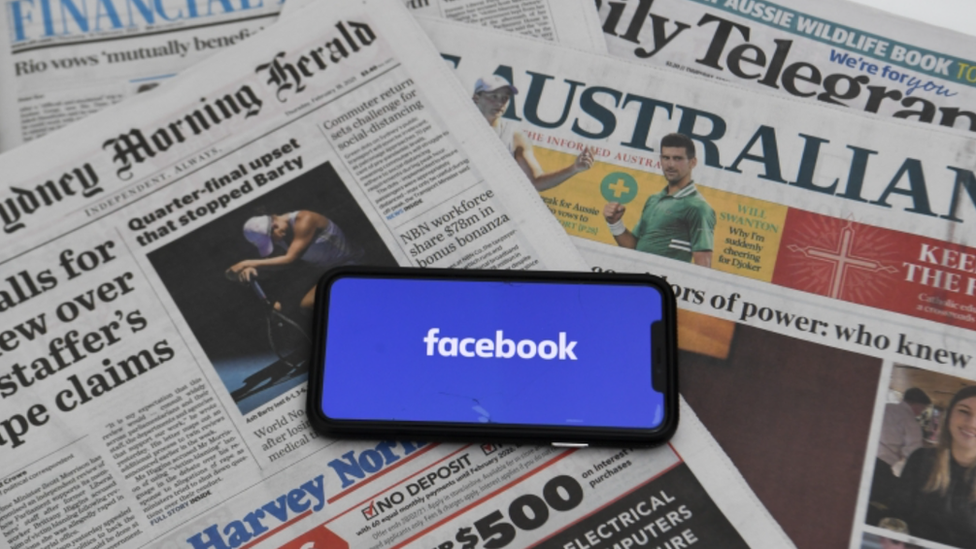Australia media can be sued for social media comments, court rules
- Published

The ruling means Australian media outlets may decide to limit reader comments
Australian news outlets can be held liable for defamatory comments posted by readers on their social media posts, the nation's top court has found.
The landmark ruling could have wide implications for how Australian news firms and others use social media.
It comes after a former teenage prisoner sued media companies over Facebook comments posted below articles about his mistreatment in detention.
News Corp Australia and Nine Entertainment could face damages.
Experts say the ruling could have consequences for anyone with a large online following, not just news publishers.
The world-first judgement could also influence defamation cases globally.
What was the case about?
In 2016, the cruel treatment of 17-year-old Dylan Voller in youth detention was exposed in a TV report.
Shocking images of him being shackled to a chair in a spit hood sparked national outcry.
It led to a public inquiry into the mistreatment of inmates in the Northern Territory's juvenile detention system.
Phil Mercer reports: "These images give a shocking insight into the treatment of teenagers jailed in one of the wealthiest countries in the world"
There was extensive media coverage, which included articles shared to Facebook by publishers.
Many users made comments on those Facebook posts about Mr Voller, who was released from detention in early 2017.
Later that year, Mr Voller sued the Sydney Morning Herald - now owned by Nine Entertainment - and News Corp's The Australian and Sky News Australia for allowing comments which he said were defamatory.
What did the courts hear?
Over a four-year legal battle, the media companies argued they were not liable because they couldn't be considered publishers of their readers' comments.
To be a publisher, they would have needed to know of their readers' allegations and intentions to express them, the firms said.
But these arguments and others were rejected by the Supreme Court of New South Wales in 2019.
The news groups then appealed to the High Court of Australia, which on Wednesday upheld the previous judgement.
The ruling said in creating a public Facebook page and posting news content there, the outlets had "facilitated, encouraged and thereby assisted the publication" of user comments.
This "rendered them publishers of those comments," the ruling by a majority of judges said. , external
Mr Voller will now be able to pursue his claim of defamation against the media giants.
Why does this matter to media?
Mr Voller's legal team called it a "historic step" for protecting individuals from "unmitigated social media mob attacks".
"This decision put responsibility where it should be; on media companies with huge resources, to monitor public comments in circumstances where they know there is a strong likelihood of an individual being defamed," said his lawyers.
But media outlets expressed alarm over the scope of the new precedent, in a nation with already restrictive defamation laws.
"We are obviously disappointed with the outcome... as it will have ramifications for what we can post on social media in the future," a Nine spokesperson said.
That will have an impact on their audiences, analysts say.
Some media groups, including the ABC national broadcaster, have already tested out a Facebook function that automatically switches off comments on posts.
And for everyone else?
Legal experts say the ruling also raises wider issues about online liability for individuals and businesses.
The case will be influential in other global jurisdictions too, said Prof Barbara McDonald, a law professor at the University of Sydney.
"It's an extremely important decision for anyone - it doesn't just apply to big media groups," she told the BBC.
"The High Court in this case has decided that if you are the host of a Facebook page, you are going to be treated as publisher, even though the comments are put there by a third party."
But she said the popularity of those accounts would most likely factor into legal considerations.
There were still various legal defences remaining, she added.
Reporting by the BBC's Frances Mao
- Published12 December 2016

- Published23 February 2021
